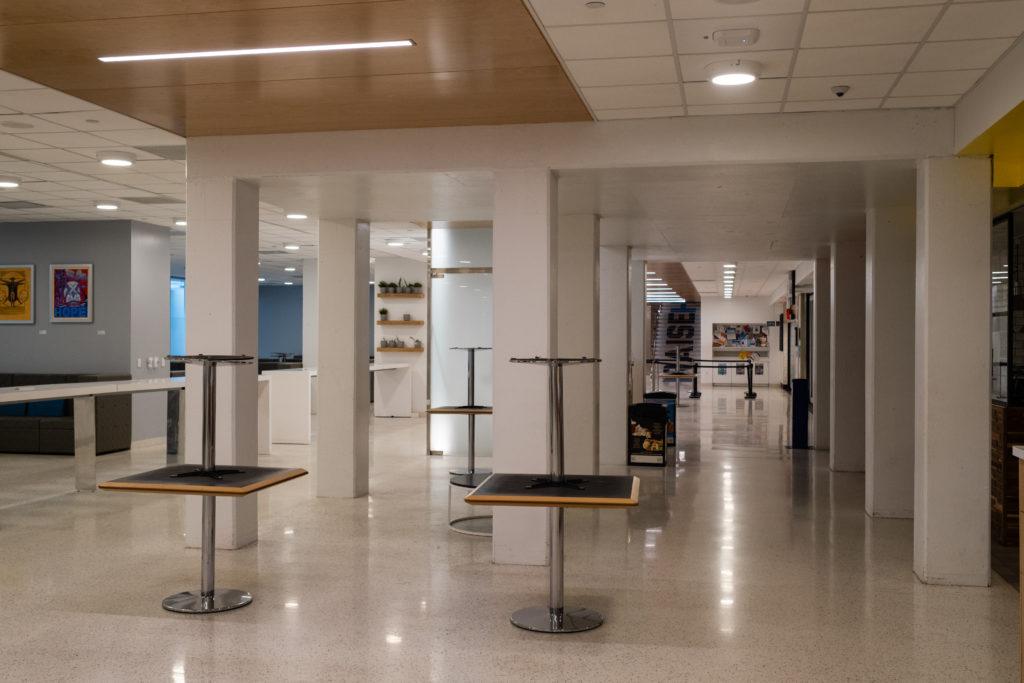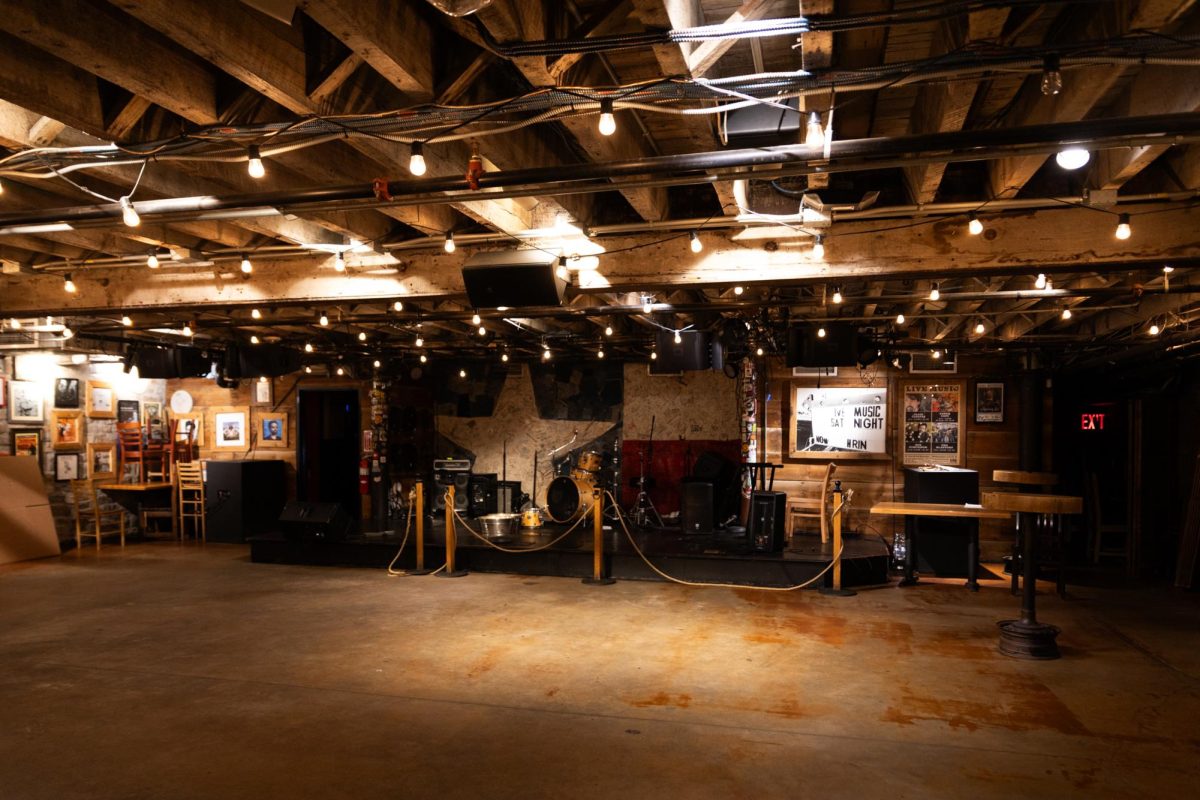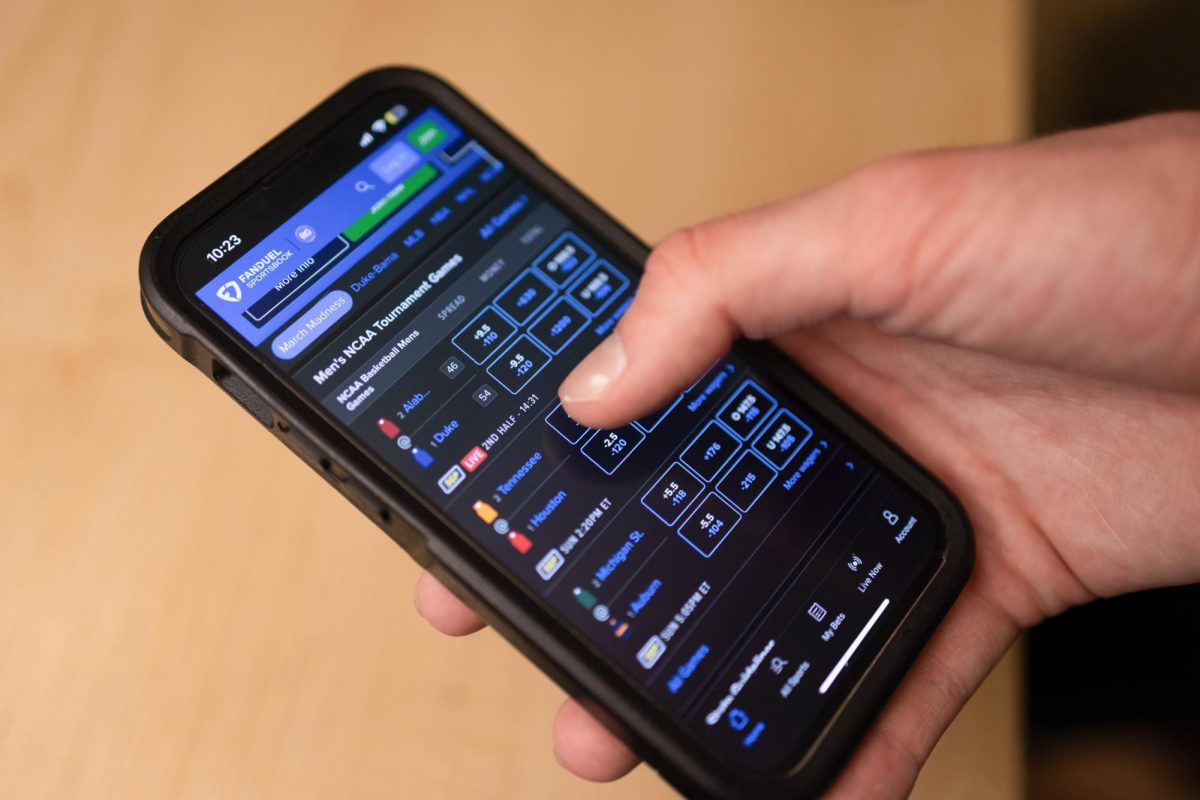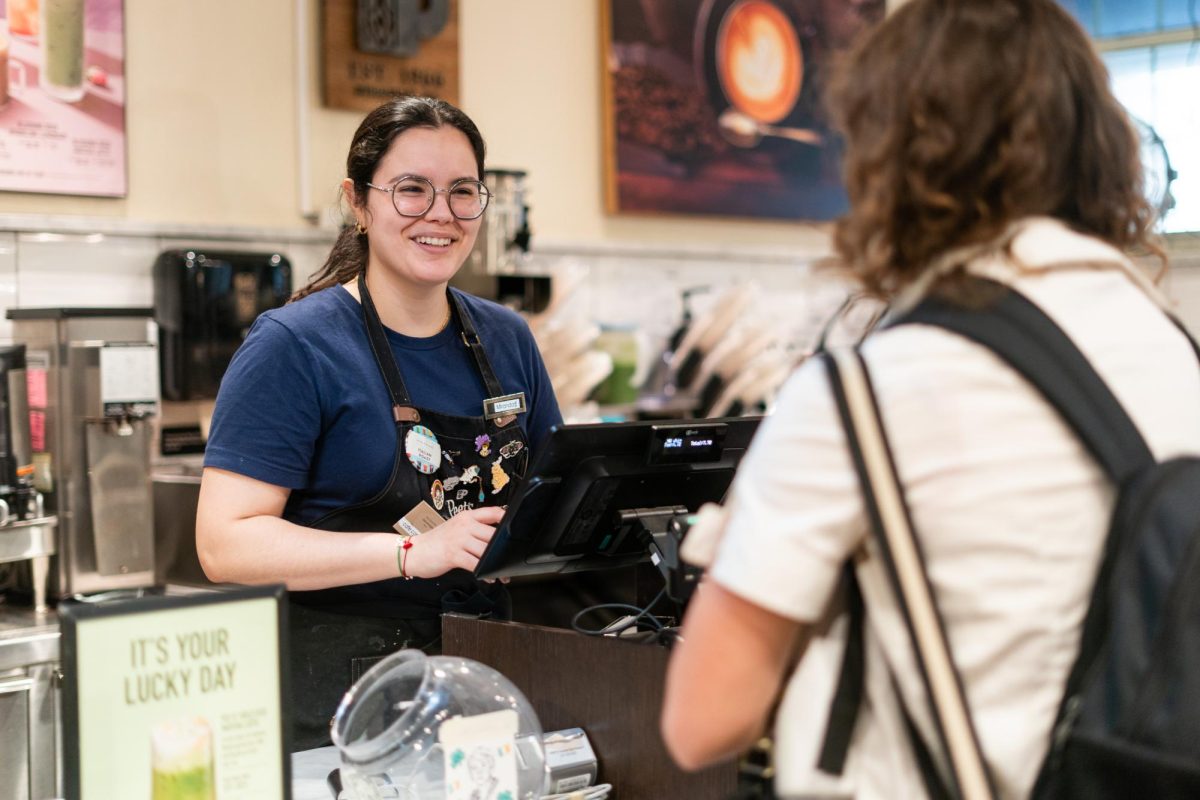In a dimly lit double on the ninth floor of Potomac Hall, Sheena Liang rolls out her yoga mat and browses through YouTube until she finds an unwatched Zumba class.
On any other normal day, the freshman from southern China would have started her workout in the Marvin Center to practice a routine for the District K dance team, but officials have closed the center and told most students to flee campus to limit the spread of COVID-19. Liang said she feared that leaving campus would be more dangerous than staying, and she was approved to stay on campus until May.
“I need to find ways to stay active, or else I feel that I will become like a couch potato,” she said. “I’m really nervous to go outside and only leave when I absolutely have to.”
Although the University required students to leave campus by April 5, officials approved about 200 students – mostly international – to stay until May 13. Students remaining on campus said that despite being secluded in their residence hall rooms, they have filled the time practicing self care and calling their family members back home to avoid isolation.
Assistant Dean of Students Seth Weinshel said in an email late last month that the students remaining on campus would consolidate into District House. But in an email obtained by The Hatchet Sunday, officials told students on campus that they will change their housing plan to provide room for D.C. or GW Hospital workers to live in the residence hall.
Mount Vernon Campus and Munson residents are moving to International House, and housing plans for students living in all other halls will be released on a rolling basis, according to the email.
“Should the city or hospital need the space they will be using District House, no GW students will be going into District House,” the email states.
Senior Edward Jahng, the director of International Students Association, who is from South Korea, said international students who have reached out to him have expressed concerns of contracting the virus while traveling home and voiding their visas by going home.
“A lot of our [international] students come from countries with health care systems that aren’t as developed,” Jahng said. “Not only are they scared about getting sick at home, but going back could void their visas, and it would add more of a burden to eventually return to GW.”
Officials originally said student employees with F-1 visas cannot telework from off-campus housing as classes move online. But they later backtracked, calling their previous guidance “premature” and saying students with F-1 visas can telework.
Jahng, who was also approved to stay on campus, said the student organization set up a “virtual friendship” platform on which international students can book Skype appointments with ISA mentors, who can provide consolation and advice while international students adapt to the pandemic.
“At this point, we’re just trying to be there for each other,” he said. “We’re making group chats to check in on the international students, but that’s as much as we’re able to do on our end.”
Jahng added that when he heads outside, there are no students or people heading to office jobs in Foggy Bottom, which makes him feel increasingly isolated. He fills up his time teleworking for his internship at the Department of Agriculture, finishing schoolwork and playing Animal Crossing or other online games with friends.
“I ordered a Switch, so I’ve been playing a lot of Animal Crossing,” Jahng said. “I’m a huge computer gamer, so I play games like Starcraft or Smash with my friends online.”
D.C. issued a stay-at-home order last week, and in the past few weeks the majority of GWorld vendors have shut down or switched to curbside pickup in an effort to keep sales up.
Maria Kharlamova, a freshman from Germany, said she is currently living in One Washington Circle Hotel after the University moved her out of Somers Hall on the Mount Vernon Campus. She said that despite staying on campus, she can still interact with other friends who were also approved to stay.
“I’ve been fortunate enough to have been placed in the hotel with a few friends of mine, so I’m not too stressed or anxious,” she said.
Kharlamova said she goes on walks, grocery shops or hangs out with friends who are also staying in separate rooms in One Washington Circle. She and her friends practice yoga and watch shows like Grey’s Anatomy, Kharlamova said.
She added that she is unable to travel home to Germany, but she would feel safer if she could because her mother is a doctor and she feels Germany has been “really good at controlling the situation.”
Germany closed its borders March 16.
“I feel like being back with my family, I’d be surrounded by doctors,” she said. “I know that here a lot of hospitals are overwhelmed, especially the doctors here, and I don’t want to add to the overwhelmingness, and I don’t want to overwhelm myself.”







